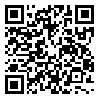BibTeX | RIS | EndNote | Medlars | ProCite | Reference Manager | RefWorks
Send citation to:
URL: http://mjiri.iums.ac.ir/article-1-2341-en.html
Background :Severe neonatal hyperbilirubinemia is associated with significant morbidity and mortality. This study was conducted to investigate the causes of severe hyperbilirubinemia leading to Exchange Transfusion (ET) from March 2009 to March 2011 in Bahrami children hospital, Tehran, Iran in order to establish guidelines to prevent profound jaundice & ET.
Methods : 94 neonates underwent ET for severe hyperbilirubinemia data for demographic data, and onset of jaundice, history of severe hyperbilirubinemia in siblings, blood group of both mother and neonate, G6PD activity, hemoglobin, hematocrite, reticulocyte count, peripheral blood smear, total and direct bilirubin before and after ET, direct and indirect Coombs, times of transfusion and the cause of hyperbilirubinemiawere all recorded for analysis.
Results : Ninety four neonates (56.4% boys and 43.6% girls) underwent ET with a mean birth weight of 1950±40 g and a mean gestational age of 35.2±1.4 weeks. Premature labor, breastfeeding jaundice, ABO incompatibility and G6PDD with the frequency of 59(63%), 33(35%), 25(24/5%) and 12(12.8%) were of major causes of ET.
Conclusions Predisposing factors for severe hyperbilirubinemia in this study were premature labor, breastfeeding jaundice, ABO incompatibility and G6PDD. The authors recommend prevention of premature labor, reevaluation of successful breastfeeding education for mothers and screening infants for blood group and G6PD In the first of life. Arranging earlier and continuous visits in neonates with these risk factors during the first four days of life is also recommended.
| Rights and permissions | |
 |
This work is licensed under a Creative Commons Attribution-NonCommercial 4.0 International License. |





